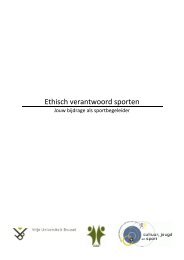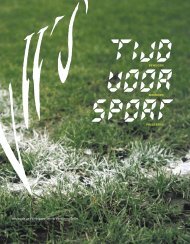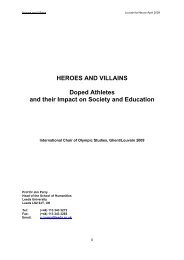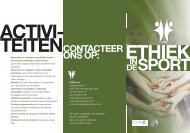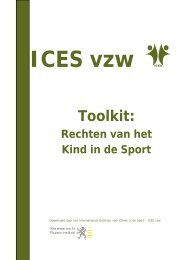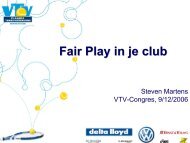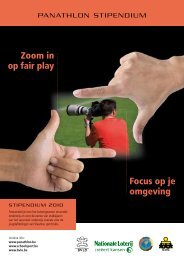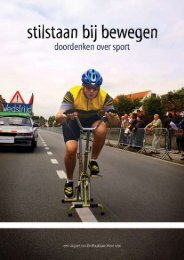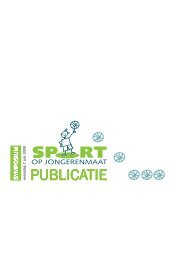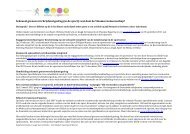swimming coaches. The role conflict/role ambiguity model presented is empirically grounded but requires further testing before claims about causality can be made. There is scant research examining sexual harassment and abuse in sport and the impact of child protection policies on sports coaches, so there are many possibilities for future research. Theory development in this area will benefit from research examining cross-sport differences, female coaches and recreational level sport. As child protection policies become embedded in all government funded youth sports programmes in the UK, it will be important to examine whether different groups of coaches experience role conflict and role ambiguity in the same way as the coaches in this study have done. For example, male coaches may experience more role conflict and role ambiguity from child protection measures than female coaches if male coaches feel more scrutinised than females. A study of male carers of foster children found that the male carers were more concerned about false allegations of abuse than the female carers. 30 It would also be useful to interview coaches from a sport that does not yet have a well-developed child protection policy, or from other countries with different cultural norms. This would allow for the impact of cultural awareness on perceptions of appropriateness, role conflict and role ambiguity to be examined. Adding to this, a longitudinal study to follow a group of coaches within a sport that is developing and implementing a child protection policy would provide insight into the development of role conflict and ambiguity and might highlight strategies for decreasing the experience of conflict and ambiguity. The child protection in sport movement could also benefit from pedagogical research examining the best methods for raising awareness and improving coaching practice without contributing to role conflict and ambiguity. It is important that this research be conducted soon so that detrimental effects of role conflict and role ambiguity can be avoided. As theory develops in this area, it will be possible to develop evidenced based practices that will encourage positive sporting experiences for both athletes and coaches. Assisting coaches to develop professional standards, teaching them how to care and be professionally friendly without overstepping the boundary into friendship, whilst also teaching parents and athletes how to recognise inappropriate coaching behaviour may achieve both the objective of protecting and developing children. 66 66
Finally, it is important to note that whilst role ambiguity and role conflict may be uncomfortable experiences, the consequences need not be negative. 27 These experiences challenge the conceived role and encourage flexibility and change that can facilitate an improvement in a coach’s role. Thus by constantly re-evaluating ideal coach-athlete interactions and discussing the difficult, often unanswerable questions, it is possible to create and maintain professionalism. 31 Notes 1. The data for this paper originated from the first author’s doctoral thesis at the University of Gloucestershire. We thank the Amateur Swimming Association and the Institute of Swimming Teachers and Coaches who funded the research, the British Association for Swimming Teachers and Coaches who provided logistical support. Celia Brackenridge and Lynne Johnston supervised the research. 2. Boocock, S., 'The Child Protection in Sport Unit', Journal of Sexual Aggression, 2002, 8, 2, pp. 99- 106. 3. Sport England, Safeguarding the welfare of children in sport: Towards a standard for sport in England. Sport England, London, 2001. 4. Football Association, The FA Annual Review 2004-2005, London, 2005. 5. sports coach UK, sports coach UK Annual Report 2006/2007, Coachwise Business Solutions, Leeds, 2007. 6. Bowker, L. H. 'The coaching abuse of teenage girls: A betrayal of innocence and trust', in: L. H. Bowker, (ed.) Masculinities and violence. Sage, London, 1998. 7. Brackenridge, C.H., ''He owned me basically...': Women's experience of sexual abuse in sport', International Review for the Sociology of Sport, 1997, 32, 2, pp. 115-130. 8. Kirby, S., Greaves, L. and Hankivsky, O., The Dome of Silence: Sexual harassment and abuse in sport. Zed Books, London, 2000. 9. Leahy, T., Pretty, G. and Tenenbaum, G., 'Prevalence of sexual abuse in organised competitive sport in Australia', Journal of Sexual Aggression, 2002, 8, 2, pp. 16-36. 10. Fasting, K., Brackenridge, C. and Walseth, K., 'Coping with sexual harassment in sport: Experiences of elite female athletes', Journal of Sexual Aggression, 2002, 8, 2, pp. 37-48. 11. Hassall, C. E., Johnston, L. H., Bringer, J. D. and Brackenridge, C. H., 'Coach and athlete perceptions of ambiguous behaviours and sexual harassment: Implications for coach education', Journal of Sport Pedagogy, 2002, 8, 2, pp. 1-21. 12. Toftegaard Nielson, J., 'The forbidden zone: Intimacy, sexual relations and misconduct in the relationship between coaches and athletes', International Review for the Sociology of Sport, 2001, 36, pp. 165-182. 13. Bringer, J. D., Brackenridge, C. H. and Johnston, L. H., 'Defining appropriateness in coachathlete sexual relationships: The voice of coaches', Journal of Sexual Aggression, 2002, 8, 2, pp. 83- 98. 14. Bringer, J. D., Brackenridge, C. H. and Johnston, L. H., 'Swimming coaches' perceptions of sexual exploitation in sport: A preliminary model of role conflict and role ambiguity', The Sport Psychologist, 2006, 20, pp. 465-479. 15. Lackey, D., 'Sexual harassment in sports', The Physical Educator, 1990, 47, 2, pp. 22-26. 16. Acosta, R. V. and Carpenter, L. J., Women in intercollegiate sport: A longitudinal study - Twentyfive year update, 1977-2002, Brooklyn College, NY, West Brookfield, MA, 2002. 17. West, A. and Brackenridge, C. H., Wot! No women coaches: A report on issues relating to women's lives as sports coaches, PAVIC Publications, Sheffield, 1990. 18. Fergusson, D. M. and Mullen, P. E. 'Childhood sexual abuse: An evidence based perspective', in: A.E. Kazdin, (Ed.) Developmental Clinical Psychology and Psychiatry Series, Sage, London, 1999. 19. Grubin, D., Sex Offending Against Children: Understanding the risk. Policing and Reducing Crime Unit, London, 1998. 67 67
- Page 1 and 2:
Part 3 GLOBAL ISSUES: HARASSMENT AN
- Page 3 and 4:
It was in the middle of these early
- Page 5 and 6:
more likely to be harassed and/or a
- Page 7 and 8:
The survey revealed a considerable
- Page 9 and 10:
8. Kirby, S.L. and Greaves, L. ‘F
- Page 11 and 12:
Research clearly indicates that rel
- Page 13 and 14:
performance. Items thrown by the co
- Page 15 and 16: High Low Figure 3.1 Athletes’ exp
- Page 17 and 18: 3.3 Sexual harassment and abuse in
- Page 19 and 20: variables:1) formation of the sport
- Page 21 and 22: een harassed and abused by a coach.
- Page 23 and 24: The results show that 30% of the st
- Page 25 and 26: 3.4 Sexual abuse of athletes in org
- Page 27 and 28: conversely, to present the perpetra
- Page 29 and 30: staff or volunteers who were not as
- Page 31 and 32: 3.5 Sexual harassment and abuse in
- Page 33 and 34: automatically mean that he/she will
- Page 35 and 36: councilors of NOC*NSF. Solid resear
- Page 37 and 38: non-aggressors. Such variables are
- Page 39 and 40: 3.6 Risks and opportunities for sex
- Page 41 and 42: under the three major headings of
- Page 43 and 44: These findings indicated that clubs
- Page 45 and 46: Whilst 8% of sports clubs knew of s
- Page 47 and 48: 3.7 Sexual harassment among female
- Page 49 and 50: slapped on the face, head or ears b
- Page 51 and 52: When I was not getting as good achi
- Page 53 and 54: 3.8 Unwanted sexual experiences in
- Page 55 and 56: 18-21 years old). The VUBrussels sa
- Page 57 and 58: Coach behaviour Perceptions Experie
- Page 59 and 60: However, KULeuven students’ perce
- Page 61 and 62: 7. Leahy, T., Pretty, G., and Tenen
- Page 63 and 64: Nineteen male swimming coaches part
- Page 65: this study. 14 It is important to n
- Page 69 and 70: 3.10 What price gold medals? An inv
- Page 71 and 72: The research that supported and und
- Page 73 and 74: symptoms. Lastly, this will only oc
- Page 75 and 76: The results from this study may lea
- Page 77: i NIF, Årsrapport 2006 - Norges Id



